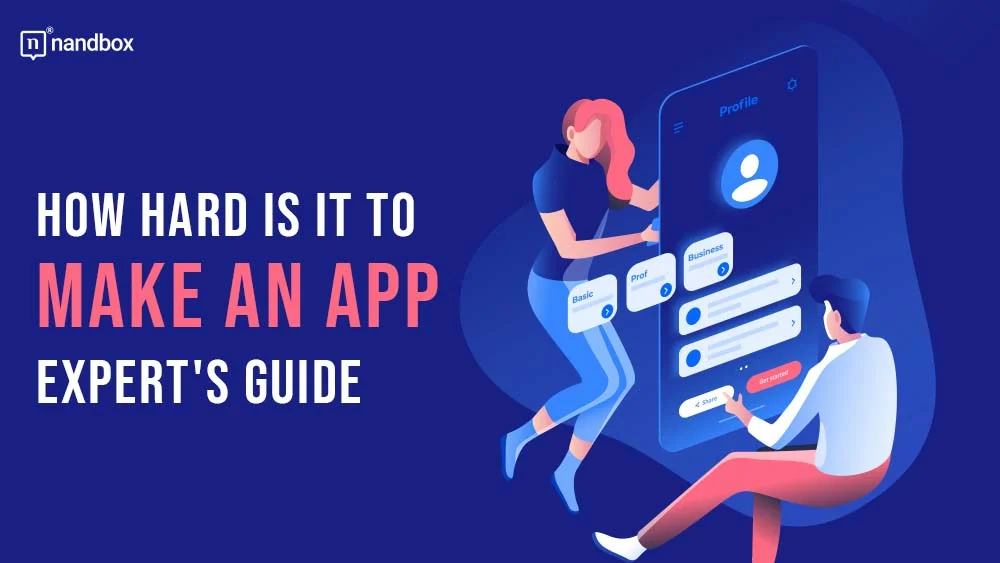Decoding the Complexity of App Development
Remember when the internet—no, that is too old. Remember when mobile phones became a thing? Especially smartphones? They took the world by storm, and everyone was excited to explore and try this new technology and instrument that would make their lives more exciting. With each new technological advancement, people get more hooked on the capabilities that make their lives easier. This results in increased and soaring demand for applications. Behind the scenes of this demand, a great number of developers are rushing to make these applications available. But this rush comes with the consequences of going through the app development process over and over, which is not an easy one. In this article, we will discuss the many faces of the app development process and demonstrate how hard it is to make an app.
Exploring the Many Faces of App Development: Definition and Process
App development is the process of crafting a complete app that is functional across various platforms and operating systems. This process is a never-ending sea, as it contains various steps and procedures that have to be conducted in order to get an appealing and functional outcome.
So, for instance, the app development process starts with intensive research for the whole market. This research is conducted on competitors, market needs, trends, and everything else that may be valuable and helpful for the development process.
The next step is always designing. Before starting with functions and adding features, the developers have to make sure that the UI and UX are the best. The UI and UX are two of the most important factors that lead to an app’s success in the case of good implementation or failure in the case of poor implementation. Developers usually start with prototyping, which is laying out ideas and layouts in an experimental environment similar to the real one.
The following step is code development, which is the developer’s biggest nightmare. Coding is known to be the most challenging step in this process, given that it requires much time, effort, and sound knowledge.
After being done with codes and code development, the developer starts setting everything up like a puzzle and starts testing. Testing is necessary to make sure that everything is conducted well and is working as it should. It is the future-proofing way to ensure avoiding problems later on.
How Hard Is It to Make an App?
Now for the biggest question. How hard is it to make an app? Let us start with the fact that nobody can deny that making an app is not the easiest thing ever. However, this varies according to the individual going through this process. The process of making an app requires an abundance of skills, ranging from technical ones like coding, designing, and testing to management skills like project management, time management, collaboration, and so on.
To further demonstrate the level of difficulty of app development and how hard it is to make an app, we will apply this to three personas. The first one is Tommy, an inspiring artist who is looking to make an app for his business. The second person is Peter, an A student with a special passion for technology and basic knowledge of coding. The last persona is Eduardo, a college student who majors in computer science.
Tommy, The Inspiring Artist
For Tommy, creating an app would be extremely difficult and somewhat impossible. With no coding knowledge, not even basic, he wouldn’t be able to take one step into the app development process. The ideal option for him would be to hire a development company or freelancers.
Peter, The Tech-Savvy
With Peter’s passion for development and technology and his basic knowledge of coding, he would be able to take one step or two into the app development process. Given that, it wouldn’t be very hard for him to make an app by seeking knowledge from different resources and development communities. However, it would take a lot of time and effort.
Eduardo, The Professional
For Eduardo, it wouldn’t be hard to make an app at all. It is like taking candy from a little kid—mean but very easy. Eduardo would be able to go through the app development process from A to Z without any difficulties. Of course, there would be hurdles here and there with things like bugs and glitches, but he can get over them like a champ
Common Challenges That Usually Make It Hard to Make an App
Challenges are a necessary part of everything, even our lives. The app development process has some common challenges that every developer has to experience or go through. Even Eduardo can’t escape these challenges. So, what are they?
Limited Development Resources
A significant obstacle to making an app is the lack of resources, such as time, money, and qualified staff. The time and money needed to complete an app development project is substantial. If funds are tight, it could be difficult to hire experienced developers or add sophisticated features. For many app developers, the eternal struggle is finding the right balance between resources to accomplish project objectives and remaining under budget.
Market Saturation and Competition
The app market is getting more and more competitive, making it harder than ever to distinguish. To attract users and gain their attention, you need to figure out what makes your app and what you are offering special, then research the market thoroughly and utilize efficient marketing methods. A lack of distinctiveness in an app could cause it to blend in with the sea of similar ones.
Testing and Quality Assurance
To guarantee an app’s efficiency, security, and usefulness, thorough testing is essential. However, when dealing with different devices, OSes, and user scenarios, comprehensive testing may become complicated and time-consuming. Developing thorough test cases, performing effective testing, and fixing faults found during testing without affecting project timeframes is a challenging task.
User Onboarding and Retention
To keep people engaged, you need to do more than just get them to download your application. It is critical to develop methods for user engagement, provide instant value, and create a smooth onboarding process. Ineffective user onboarding and retention strategies can be the cause of high user churn rates, which are detrimental to an app’s long-term viability.
Democratization of Technology and Its Role in Making the App Development Process Easier
In this dynamic tech field, more ways have been emerging in the hope of making technological advancements more accessible. Among these ways, the movement for the democratization of technology excelled and accomplished all the necessary goals. Democratization of technology is the process of making emerging technologies, tools, and processes easy and accessible for usage by everyone. One of these technologies and processes is application and app development. The democratization movement helped create solutions that would make app development easy and attainable. This was accomplished through the emergence of no-code development, which has one objective: reducing the difficulty of creating an app. Based on that, multiple no-code app-building platforms started to have a great presence online with a pool of users.
Benefits of Using No-Code App Builders
Cost-Efficiency

It might be costly to employ experienced developers when using traditional coding methods to build applications. By doing away with the requirement for a specialized development team, no-code app builders drastically cut down on development expenses. Small enterprises, entrepreneurs, and non-profit organizations can greatly benefit from this cost-effectiveness since they can still acquire the unique applications they need, even with limited budgets.
Empowerment of Citizen Developers
One way that no-code app builders empower people who don’t have coding experience is by allowing them to become “citizen developers.” Citizen developers are any organization employees who create applications using advanced tools. With this newfound power, employees may create apps that meet their specific requirements, which will cut down on IT demand queues and boost productivity across all departments. This decentralization of development skills fosters an environment of innovation and cross-departmental problem-solving.
Faster Time-to-Market
Due to the simplified development process offered by no-code app builders, the time it takes to go from idea to market for an application is much reduced. Organizations can take advantage of new possibilities, adapt to shifting market conditions, and maintain a competitive edge if they can rapidly prototype, modify, and deploy.
Cross-Functional Collaboration
Organizations can enjoy the benefits of cross-functional collaboration with no-code app development. Anyone from business clients to designers to developers can work together on the same platform, which improves communication and understanding across teams. Better applications that meet the demands of both businesses and users are the result of this kind of teamwork.
Enhanced Innovation
No-code movements and app builders encourage creativity in businesses by making app development accessible to a wider audience. You can create novel approaches and solutions that might not have been achievable with a typical development method by bringing in employees from different departments, each with their own unique perspectives and ideas.
Wrapping It Up
Last but not least, it is indeed hard and complex to make an app. Traditional app development requires a substantial time and resource investment from conception to UI design, core code, and testing. But in the dynamic world of technology, a groundbreaking solution has surfaced: the emergence of no-code development tools.
The rise of no-code development has been revolutionary since it has made creating apps accessible to more people without requiring them to have deep knowledge of programming. By dealing with the usual challenges connected with development, this method enables innovators like Eduardo, tech-savvy people like Peter, and aspiring people like Tommy with unique ideas to realize their dreams. No-code platforms like the nandbox app builder have greatly reduced the hurdles to entry in the app development industry with their user-friendly drag-and-drop interfaces, pre-built features, and visual approach.







